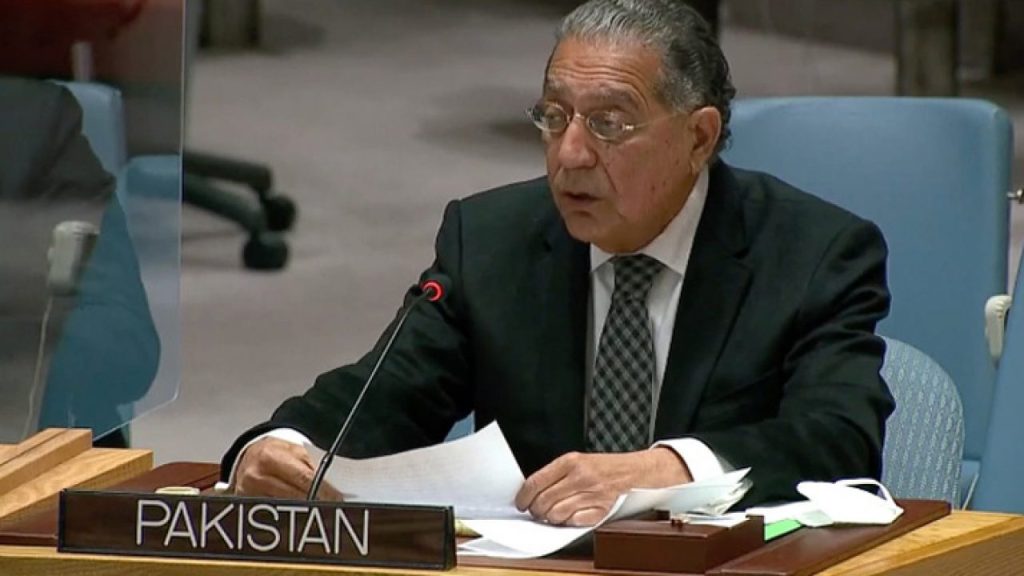A senior Pakistani diplomat has urged the United Nations Security Council (UNSC) to join Pakistan in demanding that Taliban authorities sever ties with the Tehreek-e-Taliban Pakistan (TTP), responsible for ongoing attacks against Pakistan’s military and civilians.
Ambassador Munir Akram cautioned the 15-member Council on Wednesday that if unchecked, the TTP, supported by Al-Qaeda and certain state sponsors, could evolve into a global terrorist threat.
In a discussion on Afghanistan’s situation, the Pakistani envoy pointed out the Afghan Interim Government’s failure to control TTP and other terrorist groups, weakening its assertion of territorial control crucial for international recognition.
Akram also urged the UN to investigate how TTP obtained advanced military equipment and identify its sources of financing, sustaining its 50,000 fighters and terrorist activities.
Regarding border incidents, Akram clarified that Pakistani security forces’ responses to cross-border attacks were defensive, provoked by TTP and its affiliates targeting Pakistani border posts.
He stressed that counter-terrorism should be the primary focus in any future engagement roadmap with the Afghan Interim Government, given the security threat posed by Afghan terrorist organizations to neighboring countries.
While advocating for unconditional humanitarian aid for millions of needy Afghans, Akram emphasized support for Afghanistan’s economy, including reviving the banking system and releasing frozen assets to its central bank.
Akram called on the Taliban to fulfill international obligations, especially regarding women and girls’ rights, promote inclusivity, and eradicate terrorism from Afghanistan.
He proposed a realistic roadmap involving reciprocal actions by the Afghan interim government and the international community for Afghanistan’s integration into the global community.
The Pakistani envoy also raised objections to the Secretary-General’s report on Afghanistan, particularly its characterization of an “unfavorable protection environment in Pakistan.” He emphasized Pakistan’s longstanding hosting of nearly 5 million Afghan refugees over 40 years, with minimal international support.


